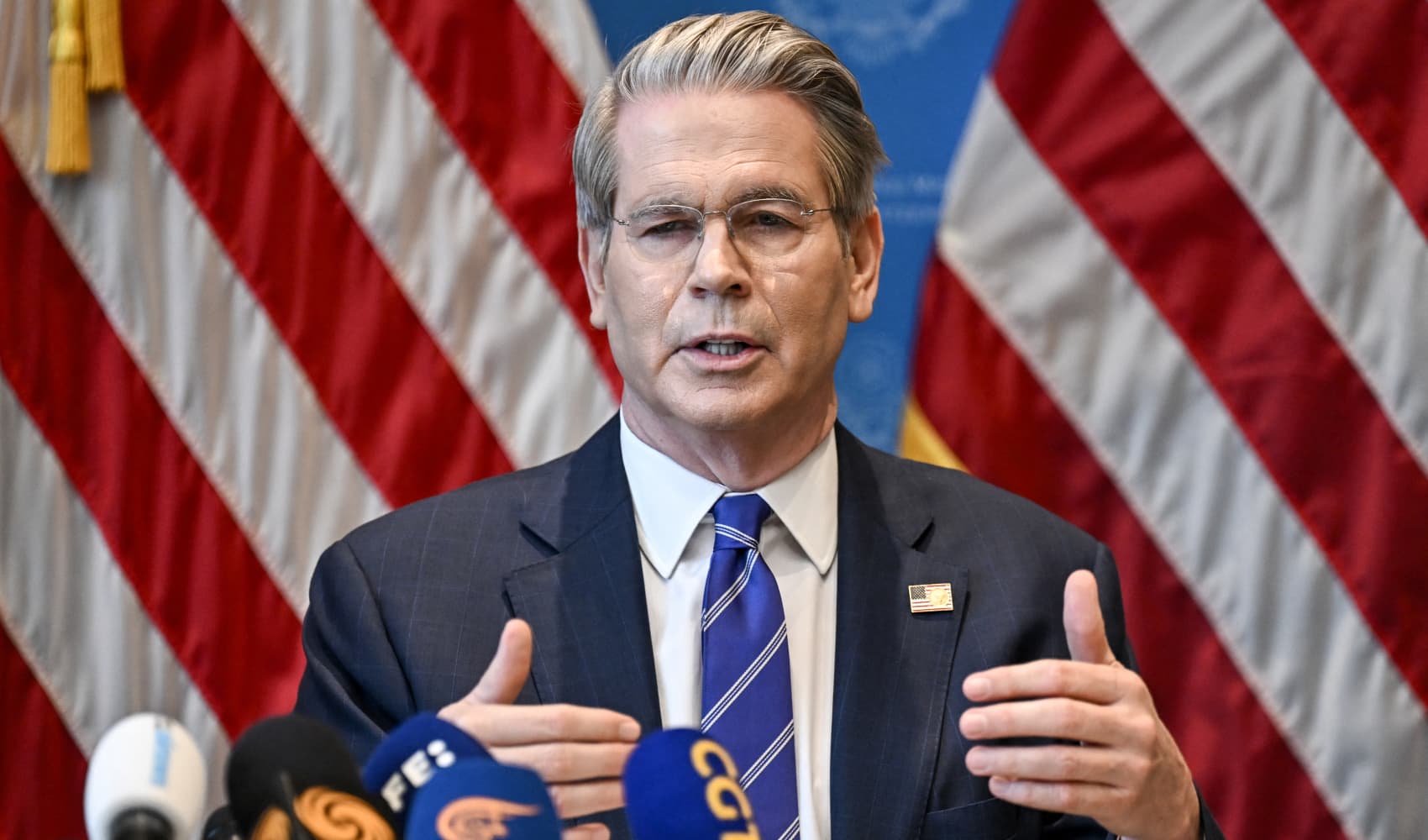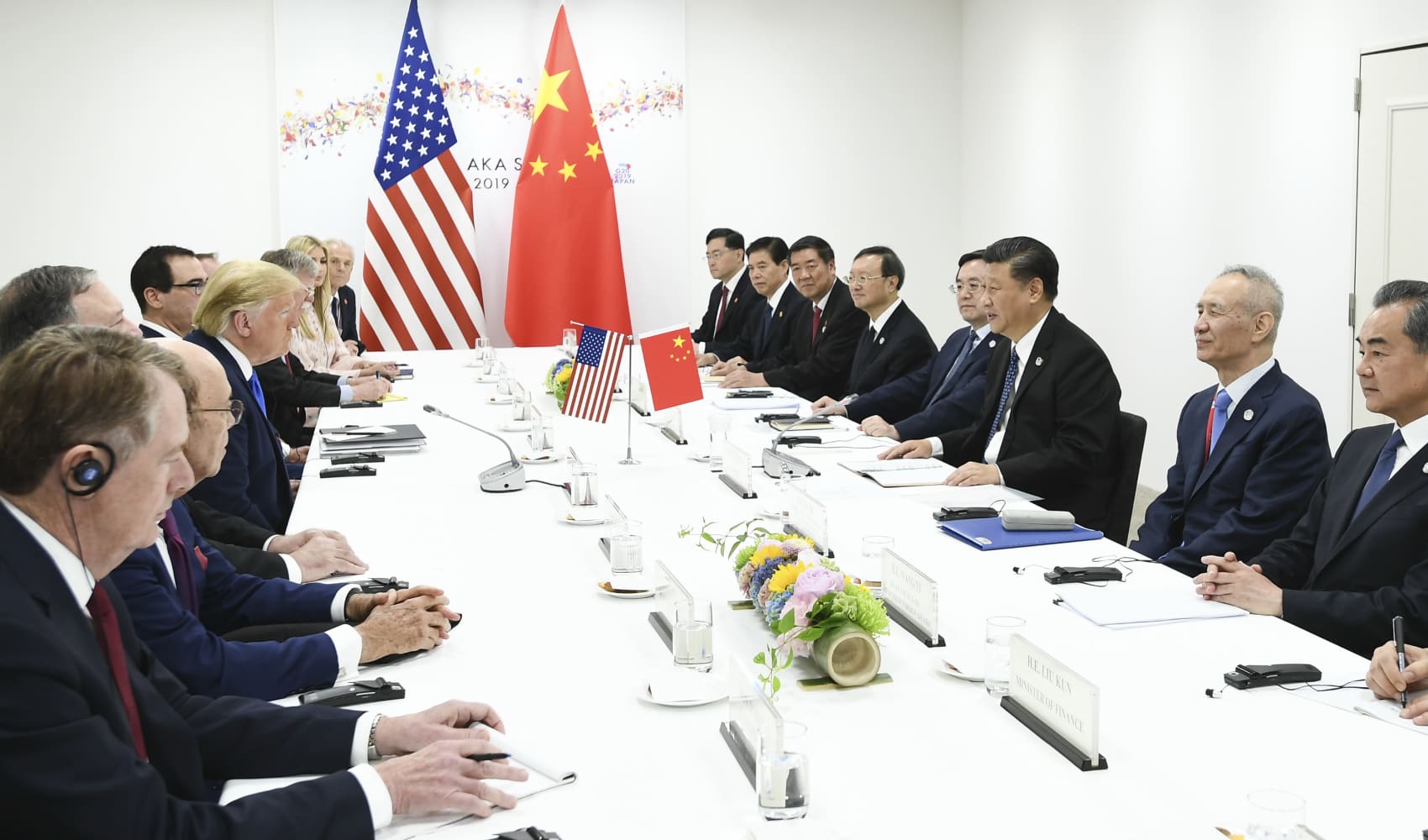Strategic Decoupling: Is China Trade Agreement a Step Forward?
Tariff Truce: Is This the Start of a Strategic Split with China?
Introduction: The Great Decoupling Debate
The world of international trade can sometimes feel like a high-stakes chess game. Moves are made, pieces are strategically positioned, and the ultimate goal is dominance. Recently, Treasury Secretary Scott Bessent suggested that the latest trade agreement between the U.S. and China represents a step forward in what he calls a "strategic" decoupling. But what does this really mean? Are we truly seeing the beginning of a significant shift in the global economic landscape? Let's dive in and explore the nuances of this complex situation.
The Weekend Agreement: A Glimpse of Progress?
According to Bessent, the trade agreement reached over the weekend signals a move toward reducing U.S. reliance on Chinese products. But let’s be honest: the details remain a bit fuzzy. What we do know is that the agreement aims to suspend so-called reciprocal tariffs, although broad-based 10% duties will remain in place. Is this a win? A compromise? Or just a temporary truce in a much larger trade war?
The Idea of Decoupling: More Than Just a Buzzword
The idea of the U.S. "decoupling" from China, particularly its reliance on cheap imports, has been floating around for years. Think of it as trying to untangle a particularly stubborn knot. It's a slow, deliberate process, and complete separation is probably unrealistic. After all, global economies are interconnected, like a vast and intricate web.
What Bessent Had to Say
Treasury Secretary Scott Bessent's comments suggest a deliberate, strategic approach to disentangling the U.S. economy from China. He sees this agreement as another step in reducing America's dependence on Chinese goods. But what specific steps are being taken, and what's the long-term plan?
The Reality of Economic Interdependence
Let's be real: completely severing economic ties with China is a monumental task. Our economies are deeply intertwined, like two vines growing around each other. Decoupling is not simply cutting one vine, but carefully separating them without killing either. We need to consider the potential impact on both nations and the global economy.
H3: The Challenge of Sourcing Alternatives
One of the biggest hurdles is finding alternative sources for the goods that are currently imported from China. Can other countries step up to meet the demand? Are we prepared to pay more for products made elsewhere? These are critical questions that need to be addressed.
H3: The Impact on Consumers
Ultimately, any shift in trade policy will impact consumers. Will prices go up? Will we see changes in the availability of certain products? These are valid concerns, and it's important to understand how these changes might affect our wallets.
Strategic Decoupling: What Does It Actually Mean?
Bessent uses the term "strategic" decoupling. This implies a thoughtful, calculated approach, rather than a sudden, drastic break. But what are the specific strategies involved? Are we talking about incentivizing domestic production, diversifying supply chains, or something else entirely?
H3: Incentivizing Domestic Production
One potential strategy is to encourage companies to bring manufacturing back to the U.S. through tax breaks, subsidies, and other incentives. This could create jobs and boost the American economy, but it's not a quick fix.
H3: Diversifying Supply Chains
Another approach is to reduce reliance on China by diversifying supply chains. This means sourcing goods from multiple countries, rather than relying on a single source. This can make the economy more resilient to disruptions, but it also requires significant investment and planning.
The Geopolitical Implications
It's crucial to consider the geopolitical implications of any decoupling strategy. How will China react? Will it seek closer ties with other countries? A strategic approach must take these factors into account.
H3: Maintaining Diplomatic Relations
Even as we decouple economically, it's important to maintain diplomatic relations with China. We need to find ways to cooperate on issues of mutual concern, such as climate change and global security. Complete isolation benefits no one.
H3: Avoiding a Trade War
The goal should be strategic decoupling, not a full-blown trade war. Trade wars can harm both sides, leading to higher prices, reduced economic growth, and increased uncertainty. A measured, deliberate approach is essential.
The Future of U.S.-China Trade Relations
So, what does the future hold for U.S.-China trade relations? Is this tariff agreement a genuine step towards strategic decoupling, or just a temporary pause in a larger conflict? Only time will tell, but it's clear that the relationship between these two economic giants will continue to evolve in the years to come.
H3: A Gradual Transformation
The most likely scenario is a gradual transformation of the U.S.-China trade relationship. We're unlikely to see a complete break, but rather a slow and steady shift towards greater independence and diversification.
H3: Navigating the New Normal
Businesses and consumers alike will need to adapt to this new normal. This may involve finding new suppliers, adjusting to higher prices, and embracing a more global perspective.
Expert Opinions: Weighing the Pros and Cons
Experts are divided on the merits of strategic decoupling. Some argue that it's necessary to protect U.S. interests and national security. Others warn that it could damage the global economy and harm American consumers. It's a complex issue with no easy answers. We need to listen to various perspectives and consider the potential consequences of each approach.
The Role of Technology in Decoupling
Technology will play a crucial role in any decoupling strategy. Advances in automation, artificial intelligence, and 3D printing could make it easier to produce goods domestically, reducing our reliance on foreign imports. These technologies could reshape the global economic landscape. They could create new opportunities for innovation and growth, but also pose challenges for workers who may need to adapt to new skills and industries.
Conclusion: A Step in a Long Journey
In conclusion, Treasury Secretary Scott Bessent's comments highlight the ongoing efforts to strategically decouple the U.S. economy from China. The recent trade agreement, while still lacking in detailed specifics, represents a potential step in that direction. However, it's crucial to recognize that this is a long and complex journey. The path forward will require careful planning, strategic investments, and a commitment to maintaining open communication with China. While this "strategic decoupling" is a hot topic, it's more akin to a marathon than a sprint. And like any marathon, endurance, preparation, and strategy are key to success.
Frequently Asked Questions
- What does "strategic decoupling" actually mean? It refers to a deliberate and gradual reduction of economic dependence on China, particularly in areas considered vital to U.S. national security or economic competitiveness. It's not about a complete break, but rather diversifying supply chains and bolstering domestic production.
- Will decoupling lead to higher prices for consumers? It's possible. If companies need to source goods from more expensive suppliers, they may pass those costs on to consumers. However, increased domestic production could also create efficiencies that offset some of these costs.
- How long will it take to decouple from China? This is a long-term process that could take years, if not decades. The pace of decoupling will depend on a variety of factors, including technological advancements, government policies, and global economic conditions.
- What are the risks of decoupling? The risks include potential trade wars, higher prices for consumers, and disruptions to global supply chains. It's important to proceed cautiously and avoid actions that could harm the global economy.
- What role will technology play in decoupling? Technology will be critical. Automation, AI, and advanced manufacturing techniques can help companies produce goods domestically at competitive prices, reducing the need to rely on foreign suppliers.

